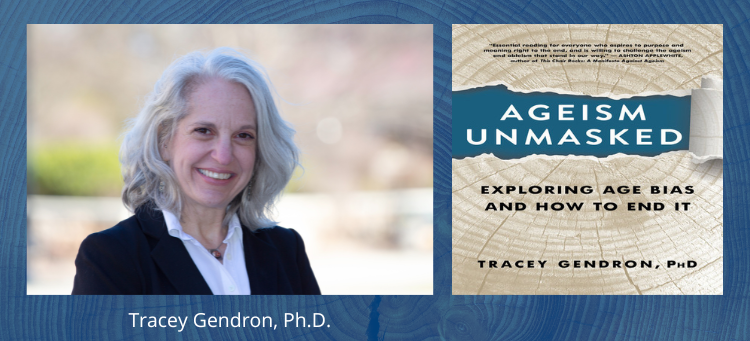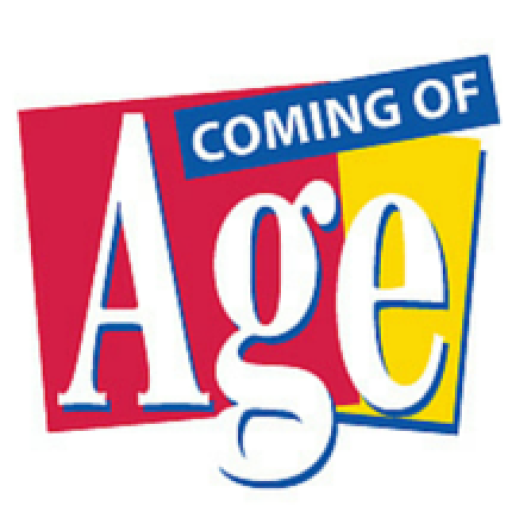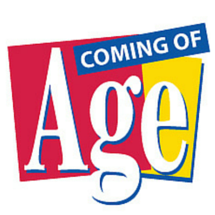by Tracey Gendron, Ph.D.

I have some good news and some bad news for you. What’s good? You’re aging, and aging means you’re living! It means that you’re continuing to develop, grow and evolve throughout your entire life. Now for the bad news. We live in a culture where we’re led to believe that being youthful is the ideal and that being older is something to fear and dread. Ageism, discrimination based on age, impacts how we see differently aged people and how we see ourselves.
Age is part of our identity – just like race, gender, ethnicity, sexual orientation and more. However, our age identity is unique in that it changes as we grow older. As a result, the way the world perceives us and the way that we interact with the world changes as we grow older. Aging is changing. Aging is living. Whatever age you are right now, here are some tips to help you think about aging more constructively.
1. Identify ageism – Negative messages about aging and being older are commonplace. Think about typical birthday cards that poke fun at being old or advertisements that shame us for having wrinkles. Ageism is everywhere and is so common that it is practically invisible. Recognizing ageism is the very first step to reframing how you think about aging and growing older.
2. Know the consequences of ageism – Did you know that ageism has real-world consequences for your health and longevity? Decades of research have found that fearing our own aging leads to increased risks of disease, depression, and ironically, a shorter life! Changing your mindset about aging can add up to 7.5 years to your life.
3. Ditch the generational labels – I bet you are familiar with the terms Baby Boomer, Gen X, Millennials and Gen Z. What you might not know is that these generational labels are completely made up. We are taught that groups of people – born within an arbitrary period of time – have common likes and dislikes as well as shared personality traits. This is not only illogical, it leads us to stereotype people based on age. Generational rhetoric is ageism, and ageism is harmful and unproductive. Ditch the generational label and focus on the likes, dislikes and experiences of every individual.
4. Reframe your understanding of aging – We are taught that aging is a slow and steady process of decline. Yes, as we age, our bodies experience decline, and we often can’t do the physical tasks we did earlier in life. We are, after all, mortal beings. But aging encompasses so much more than our physicality. Aging is a holistic process of development that is also biological, psychological, social and spiritual. We grow in innumerable ways that enhance our happiness and life satisfaction. Shifting your view of aging from a process of decline to one that includes growth is a critical step in the process of embracing all that aging has to offer.
5. Think about your growth – Remember when you were younger and you felt really awkward or self-conscious? It is easy to forget some of the struggles and discomfort that we felt as younger people. As we become older, we grow in many ways that help us to become more comfortable with ourselves. To gain some perspective about aging, think about how you have grown over the past 10, 20 or 30 years. What do you like about yourself better now? What are things you have accomplished that you are proud of? Recognize that everything you have learned is tied to your aging.
6. Imagine your future – Has anyone ever asked you what you imagine for yourself in your old age? We often discuss what we want to do, learn and experience in childhood and adulthood. But at some point, we stop asking future-oriented questions of ourselves. Elderhood is a period of life that is distinct from adulthood, just as adulthood is different from childhood. All of these life stages include growth and opportunity! In elderhood, we can create new meaning and new roles that help us thrive.
7. Celebrate the milestones – Find reasons to celebrate being older. Celebrations are important ways to acknowledge our accomplishments throughout our lives. Yet we don’t often identify milestones after retirement. We can create opportunities to celebrate longevity with rites of passage or rituals. What are some fun ways you can think of to celebrate the contributions of elders?
Dr. Tracey Gendron serves as Chair for the Virginia Commonwealth University Department of Gerontology and Executive Director of the Virginia Center on Aging. Dr. Gendron has over 25 years of experience as a gerontologist and is the author of the bestselling book Ageism Unmasked: Exploring Age Bias and How to End It. She appeared at a May 2022 Coming of Age webinar exploring the topic of ageism. Watch the webinar below:


Learn more by watching the video (after the article) or grab a copy of the book, Ageism Unmasked.